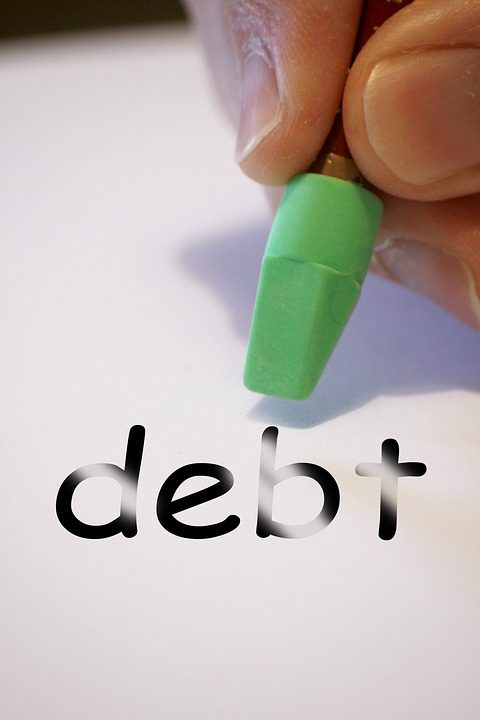7 Reasons To Seek Addiction Treatment
Substance use disorder, which is more colloquially known as drug addiction, is a serious mental...
toll free: 844.955.3042
local tel: 561.464.6505
fax: 561.450.6637
info@recointensive.com
RECO Intensive
140 NE 4th Avenue
Delray Beach, FL 33483
Addiction is a multi-faceted disease with wide-ranging and sometimes unexpected effects. One of these is the effect that addiction has on your financial stability. It can be a shock to discover not only how much you spent, but how much you may now owe as a result of your time in addiction treatment centers. However, there are many ways to repair your finances and restore stability.
The most important thing you can do is to make the commitment to deal with your financial issues. You will encounter bumps in the road as you do the work of restoring your finances, and your commitment will need to extend to these as well.
Just like your outpatient addiction treatment, the road to your financial health will be a marathon and not a sprint. Be patient with yourself as you do the work of getting back on your feet.
Understanding your current financial situation probably fills you with dread, but you’re not the only person who has had financial problems. Let’s face it: Unless you know what’s happening now, you can’t make any future financial plans. The amount of work ahead in this stage will depend on many factors.
As your addiction progressed, your spending would have increased as your time spent at work decreased. This will also affect how much work it will take to determine your current financial situation. Whatever the particular circumstances surrounding your addictive behaviors, you don’t have to do it alone; it’s always a good idea to ask someone you trust for help.
Now that you have a general picture of your financial health, it’s time to identify what kinds of debt you have and categorize each in order of urgency. The latter can be very difficult, which is another reason to have the help of a trusted friend or family member.
Bank loans and credit cards are very common sources of debt. If you have these, you’ll need to know how much you owe and how much you may be being charged for late fees and interest. Next, look at how much each creditor wants for a minimum payment. If you haven’t made one in a while, your payments may be much higher than you anticipated.
Are you earning any money right now? If so, you need to figure out how much you can afford to repay monthly. Before you do that, however, look at your current living expenses. How much do you need to reserve for things like food, electricity, childcare, and your rent or mortgage?
If there is money left after expenses, but it is less than your creditors are requesting, you will have to contact them. If there isn’t any extra for repayment, check with your state; you may be able to qualify for temporary assistance with these costs.
You’ll also want to look at where your money is going. Are you spending more on what you need, or is the bulk of your money going toward things you want? You need to be willing to put your financial stability at the top of your list of priorities and eliminate as much spending on non-essential items as possible.
It may seem like a far less painful option to put up the white flag and declare bankruptcy, but the reality is that bankruptcy also costs money. Plus, it may not be granted to you, and it won’t benefit you nearly as much in the long run as doing the above work.
Getting in touch with creditors about your debt may not be easy, but it can have some surprisingly positive results. In taking the time to contact them, you’re communicating that you are making an effort to make things right. Explain your circumstances and ask them if they would possibly agree to absorb a portion of your amount owing or allow you to delay your payments for the time being.


If you owe money to several creditors who are calling you several times a day, but you have little or no income, consolidating your debt can be a solution. See if you can find a debt consolidation service in your area that works with low-income individuals. This may help you consolidate your debt for a much lower fee.
Consolidating your debt will accomplish many things; it will reduce or eliminate creditor calls and the stress that accompanies them, and it can also result in you having a lower amount to pay. A consolidator works directly with creditors on your behalf and knows what to say to try and get you the best results.
Your intensive outpatient treatment center may also have resources to help you consolidate and repay your debt. Whatever solution you choose, the single most important thing to do after getting help is to always make your payments on time.
You want to pay your debts, but you also need money to live. Making a budget will ensure that you can do all of the above, and more, because you will know exactly how much money is going out and coming in. Simply plug in your numbers for expenses each month and subtract this amount from your income.
It can be a good idea to have one account for your paychecks and a second one for your bills. This way, you can ensure you always have what you need in each account for expenses and repayments. If your budget has revealed some extra cash after payments and expenses, great! Now, you can start planning to put money aside and open a third account for this purpose.
Maybe you want to travel or start a college fund for your children. Whatever you wish to do, creating financial goals will help you stay on track. You’ve been looking at your expenses and have budgeted out what you need to meet your obligations. Now, use those same skills to figure out how much you can afford to set aside from each paycheck.
Treat this payment just as you do your creditor payments—as a priority. When your paycheck comes and you’ve made your other payments, put money into your savings at the same time.
Even though you’ve gone through the recovery process, the psychological aspect of your addiction may still arise in your new life. You will find you’ve got more money than you thought, and that can be a big temptation. Using the skills you’ve learned throughout recovery, you can know when you’re experiencing relapse signs.
Your sponsor can help you navigate what you’re feeling during these times. If you think you may feel compelled to spend your money on frivolous items instead of putting it into your savings account, you can enlist the help of someone you trust to help you put that money in a place where you can’t easily access it.
You can also prevent relapse and going back into debt by not applying for any more credit cards or loans. Ask family members to throw away any credit applications addressed to you, and never hesitate to contact your sponsor if you need help.


The best thing you can do for yourself is to maintain a positive outlook. Doing so means nurturing yourself by doing the things you love to do, whether alone or with those you care about. If you’re not at a job you love right now, take steps toward a more fulfilling one. If you have some time to spare, volunteering can be a great way to stay positive and focused on your goals.
RECO Intensive can also help you get back to a brighter future. Our recovery programs offer a personalized treatment option via comprehensive solutions and sober living and aftercare that address addiction’s lingering effects. When you’re ready to discover a better life, call RECO at 1-561-501-2439.